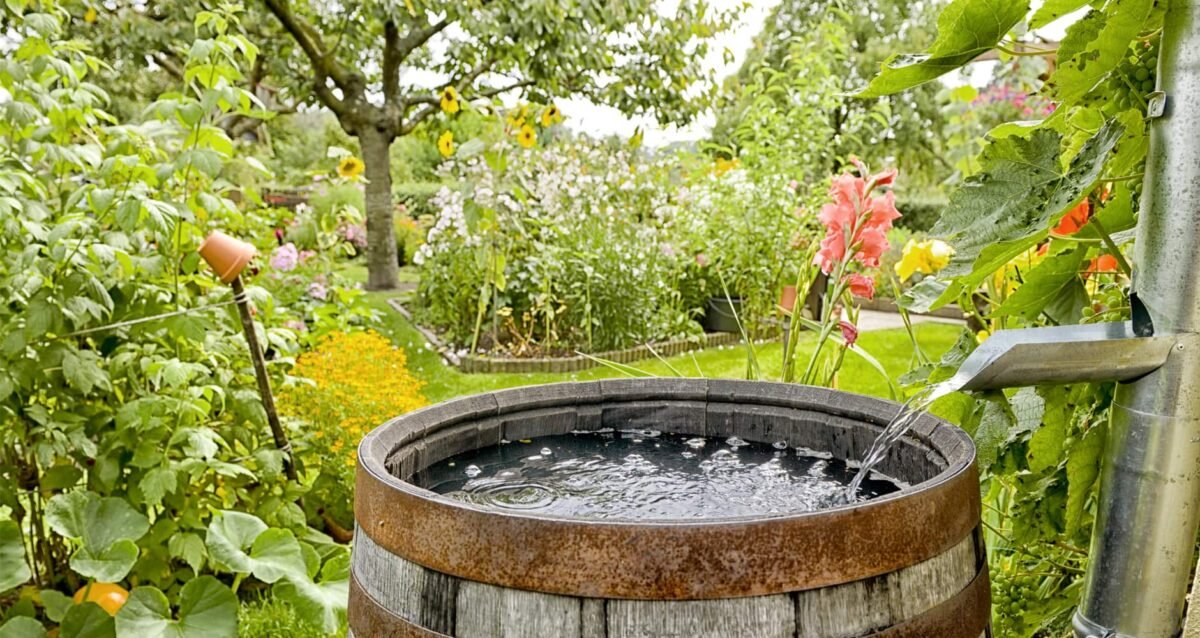Rainwater harvesting seems like a simple and sustainable solution to water scarcity, but the legal landscape surrounding this practice is a complex web of regulations.
In this article, you’ll learn about the legal aspects of rainwater harvesting, from state-by-state laws and requirements to controversies and the future of this practice.
Key Takeaways:
- Understand the rationale behind regulating rainwater harvesting
- Explore state-specific regulations, including legal, restricted, and illegal states
- Navigate legal requirements, permits, water rights, and best practices
- Gain insights into controversies and debates around rainwater harvesting legislation
- Discover potential loopholes, workarounds, and the future of rainwater harvesting laws
Table of Contents
Understanding Rainwater Harvesting Laws

Rainwater harvesting, the practice of collecting and storing rainwater for later use, seems like a simple and sustainable solution to water scarcity. However, the legal landscape surrounding this practice is far from straightforward. Before delving into the complex web of regulations, it’s crucial to understand the core concepts.
What is Rainwater Harvesting?
Rainwater harvesting involves capturing and storing rainwater that falls on rooftops, land surfaces, or other catchment areas. This water can then be used for various purposes, such as irrigation, flushing toilets, washing clothes, or even drinking (after proper treatment).
The collected rainwater is typically stored in barrels, tanks, or cisterns for future use. For preppers, rainwater collection systems can provide a valuable emergency water supply.
Why Regulate Rainwater Harvesting?
The primary concern driving the regulation of rainwater harvesting revolves around water rights and resource management. Governments aim to ensure fair and equitable distribution of water resources, particularly in areas prone to droughts or water scarcity. By regulating rainwater harvesting, authorities seek to prevent potential conflicts over water rights and maintain control over valuable water sources.
Here are some key considerations that drive rainwater harvesting regulations:
- Water Rights: In many regions, all water sources, including rainwater, are considered a shared public resource. Governments assert their authority to regulate the use and collection of water to protect the interests of all citizens.
- Environmental Impact: Unrestricted rainwater harvesting could potentially disrupt natural water cycles, impacting ecosystems and groundwater levels.
- Equitable Distribution: Regulations aim to prevent individuals or entities from monopolizing water resources, ensuring fair access for all.
- Public Health and Safety: Improperly harvested or stored rainwater can pose health risks if not treated correctly, leading to the need for guidelines and oversight.
While the rationale behind regulating rainwater harvesting is understandable, the patchwork of laws and regulations across different states can be bewildering for those seeking to implement this sustainable practice.
State-by-State Rainwater Harvesting Regulations

The legal landscape surrounding rainwater harvesting is a complex tapestry woven by individual state laws and regulations. Some states embrace this practice wholeheartedly, while others impose strict limitations or outright bans. Let’s delve into the varying stances adopted by different states.
States Where Rainwater Harvesting is Legal
In several states, rainwater harvesting is not only permitted but actively encouraged as a sustainable and water-conserving practice. Here are some examples:
| State | Legality |
|---|---|
| Colorado | Legal, with some restrictions on large-scale harvesting |
| Illinois | Legal, with no significant restrictions |
| Missouri | Legal, with guidelines for proper system installation |
| Ohio | Legal, with recommendations for safe water treatment |
In these states, residents can freely collect and utilize rainwater for various purposes, provided they adhere to any applicable guidelines or best practices.
States with Restrictions on Rainwater Harvesting
Other states have implemented varying levels of restrictions on rainwater harvesting, ranging from permit requirements to limitations on the amount of water that can be collected or the intended use. For example:
- Utah: Requires a permit for rainwater harvesting systems, with restrictions on the amount that can be collected based on property size.
- Nevada: Allows rainwater harvesting for residential use but prohibits large-scale commercial operations.
- Washington: Permits rainwater harvesting but limits the amount that can be collected based on water rights laws.
States Where Rainwater Harvesting is Illegal
Surprisingly, there are still a few states where rainwater harvesting is effectively banned or heavily restricted, citing concerns over water rights and resource management:
- Colorado: Rainwater harvesting is generally illegal due to strict adherence to the doctrine of prior appropriation for water rights.
- Arkansas: Rainwater harvesting is prohibited, with some exceptions for limited residential use.
It’s important to note that these state-level regulations are subject to change, and it’s always advisable to consult the most up-to-date information and local authorities before embarking on a rainwater harvesting project.
Navigating Legal Requirements for Rainwater Collection
Even in states where rainwater harvesting is legal, there may be specific legal requirements and guidelines that must be followed to ensure compliance and safety. Understanding these nuances is crucial for preppers and homeowners seeking to implement rainwater collection systems legally.
Permits and Licenses
In some states, a permit or license may be required before installing a rainwater harvesting system. The requirements for obtaining these permits can vary widely, ranging from simple applications to more complex processes involving site inspections and adherence to specific guidelines.
- In Texas, for example, a permit from the Texas Water Development Board is required for rainwater harvesting systems with a capacity exceeding 500 gallons.
- In Arizona, a water harvesting permit is necessary for systems capturing more than 8,000 gallons of rainwater per year.
Water Rights and Riparian Laws
Another critical legal consideration is the concept of water rights and riparian laws, which govern the use and distribution of surface water and groundwater. In states that follow the doctrine of prior appropriation, individuals may need to obtain water rights before collecting rainwater, as it is considered a part of the overall water system.
Riparian laws, which apply in states bordering bodies of water, also play a role in regulating rainwater harvesting. These laws may dictate how much water can be diverted from natural water sources, including rainwater runoff.
Rainwater Harvesting Guidelines and Best Practices
Even in states where rainwater harvesting is legal, there are often guidelines and best practices in place to ensure safe and responsible water collection. These guidelines may cover various aspects, such as:
- Proper system design and installation
- Water treatment and purification methods (check out our guide on best rated portable water filters)
- Storage tank requirements (like setting up large water storage tanks)
- Maintenance and inspection protocols
- Acceptable uses for harvested rainwater
Adhering to these guidelines not only ensures compliance with local regulations but also promotes public health and safety, particularly when the harvested rainwater is intended for potable uses.
By understanding the legal requirements, water rights considerations, and best practices associated with rainwater harvesting, preppers and homeowners can navigate the complex regulatory landscape and implement sustainable water collection systems responsibly.
Controversies and Debates Around Rainwater Harvesting Legislation
Despite the apparent environmental benefits of rainwater harvesting, the legal frameworks surrounding this practice have sparked heated debates and controversies. At the heart of these discussions lie conflicting viewpoints on property rights, public water management, and environmental concerns.
Property Rights vs. Public Water Management
One of the central controversies revolves around the clash between private property rights and the government’s role in managing public water resources. Proponents of rainwater harvesting argue that individuals should have the right to collect and utilize rainwater that falls on their own property, as it is a natural resource they are entitled to use.
However, opponents counter that water, regardless of its source, is a shared public resource that must be regulated to ensure fair distribution and prevent potential conflicts or monopolization by private entities.
Environmental Concerns and Water Scarcity Issues
Another contentious aspect of rainwater harvesting legislation is its potential impact on the environment and water scarcity issues. While some argue that rainwater harvesting can alleviate strain on municipal water supplies and promote water conservation, others raise concerns about the potential disruption of natural water cycles and ecosystems.
In areas prone to droughts or water scarcity, there are fears that widespread and unregulated rainwater harvesting could exacerbate these issues by reducing the overall water available for replenishing groundwater reserves and sustaining natural habitats.
These debates underscore the delicate balance that must be struck between individual rights, public resource management, and environmental sustainability when crafting rainwater harvesting legislation.
Legal Loopholes and Workarounds for Rainwater Harvesting
As the legal landscape surrounding rainwater harvesting remains complex and varied, some resourceful individuals have explored potential loopholes and workarounds to navigate restrictive regulations. However, it’s crucial to approach these alternatives with caution and a thorough understanding of local laws.
Exemptions and Exceptions
In some states, exemptions or exceptions may exist that allow for limited rainwater harvesting without the need for permits or licenses. For example, certain states may exempt residential rainwater collection systems below a specified capacity from requiring a permit.
It’s essential to carefully research and understand the specifics of these exemptions, as they often come with caveats and limitations on the intended use or volume of harvested rainwater.
Off-Grid Living and Rural Areas
Another potential workaround for those living in areas with restrictive rainwater harvesting laws is to embrace an off-grid lifestyle or reside in rural areas where enforcement may be less stringent. However, it’s important to note that this approach does not necessarily exempt individuals from legal obligations and may still carry risks of potential fines or legal consequences if discovered.
Before considering any legal loopholes or workarounds, it is crucial to consult with local authorities and seek professional legal advice to ensure compliance and avoid potential legal ramifications.
The Future of Rainwater Harvesting Laws
As concerns over water scarcity, environmental sustainability, and individual rights continue to shape public discourse, the future of rainwater harvesting laws remains a hot topic of debate and potential legislative changes.
Trends and Proposed Legislative Changes
In recent years, there has been a growing trend towards recognizing rainwater harvesting as a viable and sustainable practice. Several states have taken steps to loosen restrictions or introduce new legislation to facilitate and encourage responsible rainwater collection.
For example, Colorado, which previously had a near-total ban on rainwater harvesting, recently passed legislation allowing limited residential rainwater collection under specific guidelines.
Similarly, Utah and Washington have introduced bills to expand rainwater harvesting rights and streamline permitting processes, recognizing the potential benefits for water conservation and drought preparedness.
Advocacy Efforts and Public Opinion
Alongside legislative initiatives, advocacy groups and public opinion have played a significant role in shaping the discourse around rainwater harvesting laws. Organizations focused on water conservation, environmental protection, and property rights have lobbied for regulatory changes and raised awareness about the importance of responsible rainwater collection.
As public consciousness continues to grow regarding the need for sustainable water management practices, it is likely that more states will reevaluate their rainwater harvesting laws, potentially leading to a more harmonized and permissive legal landscape nationwide.
However, it’s important to note that the future of rainwater harvesting laws will continue to be shaped by ongoing debates, evolving environmental concerns, and the delicate balance between individual rights and public resource management.
For preppers interested in exploring rainwater harvesting as part of their emergency water supply strategy, it’s essential to stay informed about the latest developments in this area. Check out our comprehensive guide on how rainwater harvesting systems work and harvesting rainwater systems for practical insights and tips.
Conclusion
As we’ve explored, the legal landscape surrounding rainwater harvesting is a complex tapestry woven by individual state laws, regulations, and varying perspectives.
While some states embrace this practice wholeheartedly, others impose strict limitations or outright bans. Here’s a quick summary of the key points:
- Legal Requirements and Considerations:
- Permits and licenses may be required in some states
- Water rights and riparian laws govern the use and distribution of water sources
- Guidelines and best practices ensure safe and responsible rainwater collection
- Controversies and Debates:
- Clash between private property rights and public water management
- Environmental concerns and water scarcity issues
- Delicate balance between individual rights and resource management
- Future Outlook:
- Growing trend towards recognizing rainwater harvesting as a sustainable practice
- Proposed legislative changes to loosen restrictions and streamline processes
- Advocacy efforts and public opinion shaping the discourse
| Legal Status | Example States |
|---|---|
| Legal | Colorado, Illinois, Missouri, Ohio |
| Restricted | Utah, Nevada, Washington |
| Illegal | Colorado, Arkansas |
As water scarcity and environmental concerns continue to shape public discourse, the future of rainwater harvesting laws remains a topic of ongoing debate and potential change.
Stay informed, consult local authorities, and approach this practice responsibly to navigate the complex legal landscape effectively.


